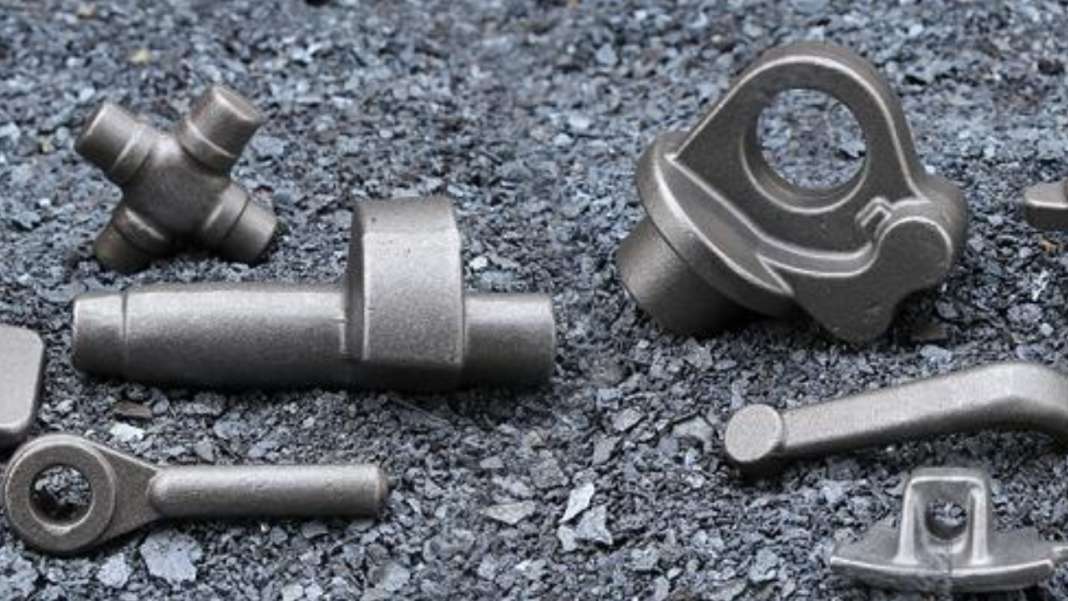Forging improves the structural integrity of aluminum, which results in forged parts with remarkable strength and durability. Aluminum is formed using a high-pressure process called forging, which produces a refined and dense grain structure. Forged aluminum components are perfect for demanding applications in the automotive, aerospace, and industrial sectors because of the superior mechanical properties they impart.
Better heat dissipation and corrosion resistance are features of forge parts. Their lightweight design improves performance overall and fuel efficiency even more. Because of its versatility, aluminum forging is a highly preferred option for critical components, assuring dependability and durability in a wide range of engineering applications.
What Perks Can Aluminum Forged Parts Offer?
The superior mechanical properties of aluminum-forged parts include remarkable strength, durability, and a refined grain structure. They are perfect for industrial, automotive, and aerospace applications because the forging process improves structural integrity. Aluminum-forged parts improve overall performance and fuel efficiency in a variety of engineering contexts due to their lightweight design, corrosion resistance, and effective heat dissipation.
Forged aluminum parts are desirable for a variety of applications due to their many qualities. Using localized compressive forces, forging is a manufacturing process that shapes metal. The following are some essential features of aluminum-forged parts:
Strong but Lightweight:
The remarkable strength-to-weight ratio of aluminum-forged parts is one of their most distinguishing qualities. Aluminum forgings are incredibly strong and lightweight compared to steel, which makes them perfect for applications where weight reduction is important but structural integrity is not a priority. In the aerospace industry, where lighter aircraft improve performance and fuel efficiency, this feature is especially helpful.
Superb Resistance to Corrosion:
Aluminum’s protective oxide layer is strengthened when it is forged, adding to its inherent resistance to corrosion. Because of their ability to withstand corrosion, aluminum-forged parts find extensive use in automotive parts, marine environments, and weather-exposed structures. This feature guarantees durability and low maintenance needs, which helps create affordable solutions for a range of industries.
Elevated Thermal Conductivity:
Aluminum is a great heat conductor, and aluminum-forged parts maintain this quality. They are therefore perfect for uses requiring effective heat dissipation, like electronic components and heat exchangers in automobile radiators. Equipment longevity and optimal performance are guaranteed by the capacity to transfer heat quickly.
Accuracy and Intricacy in Design:
Aluminum forgings give engineers and designers the flexibility to precisely create complex and detailed shapes. It may be difficult to accomplish fine details and tight tolerances with other manufacturing processes, but the forging process makes it possible. This quality is especially useful in sectors like aerospace and automotive, where complex geometries are frequently necessary for the best possible functionality.
Sustainability of the Environment:
One very sustainable material is aluminum. Its inherent properties are not compromised, and it is fully recyclable. Aluminum is environmentally friendly because recycling uses a small amount of energy compared to primary production. This sustainability feature fits in with the modern manufacturing industry’s growing emphasis on corporate responsibility and environmentally friendly practices.
Economical Production:
The long-term cost-effectiveness of aluminum-forged parts is apparent, even though aluminum may initially cost more than some other materials. Due to its longevity, resistance to corrosion, and lightweight, it outperforms its initial investment in terms of efficiency and maintenance costs.
Increased Resistance to Fatigue:
Because of their superior fatigue resistance, aluminum-forged parts are a good choice for applications involving frequent stress cycles. This quality is especially important in sectors like the automotive industry where parts are subjected to dynamic loads and continuous vibrations. The fatigue resistance of aluminum-forged parts adds to their dependability and longevity in a variety of harsh settings.
Vast Selection of Alloys:
The availability of a broad variety of aluminum alloys enhances the versatility of aluminum-forged parts even more. Every alloy has a unique set of benefits, like better machinability, stronger strength, and improved resistance to corrosion. Because of this adaptability, producers can customize the material’s qualities to fit the particular needs of every application.
Conclusion
The qualities of aluminum-forged parts make them a top option across a variety of industries. Aluminum forged parts continue to be essential to the advancement of contemporary engineering and manufacturing because of their remarkable strength-to-weight ratio, resistance to corrosion, precision in design, and environmental sustainability. As technology advances, the need for strong, lightweight, and environmentally friendly materials will probably push aluminum forgings to the forefront of creative solutions in several industries.







